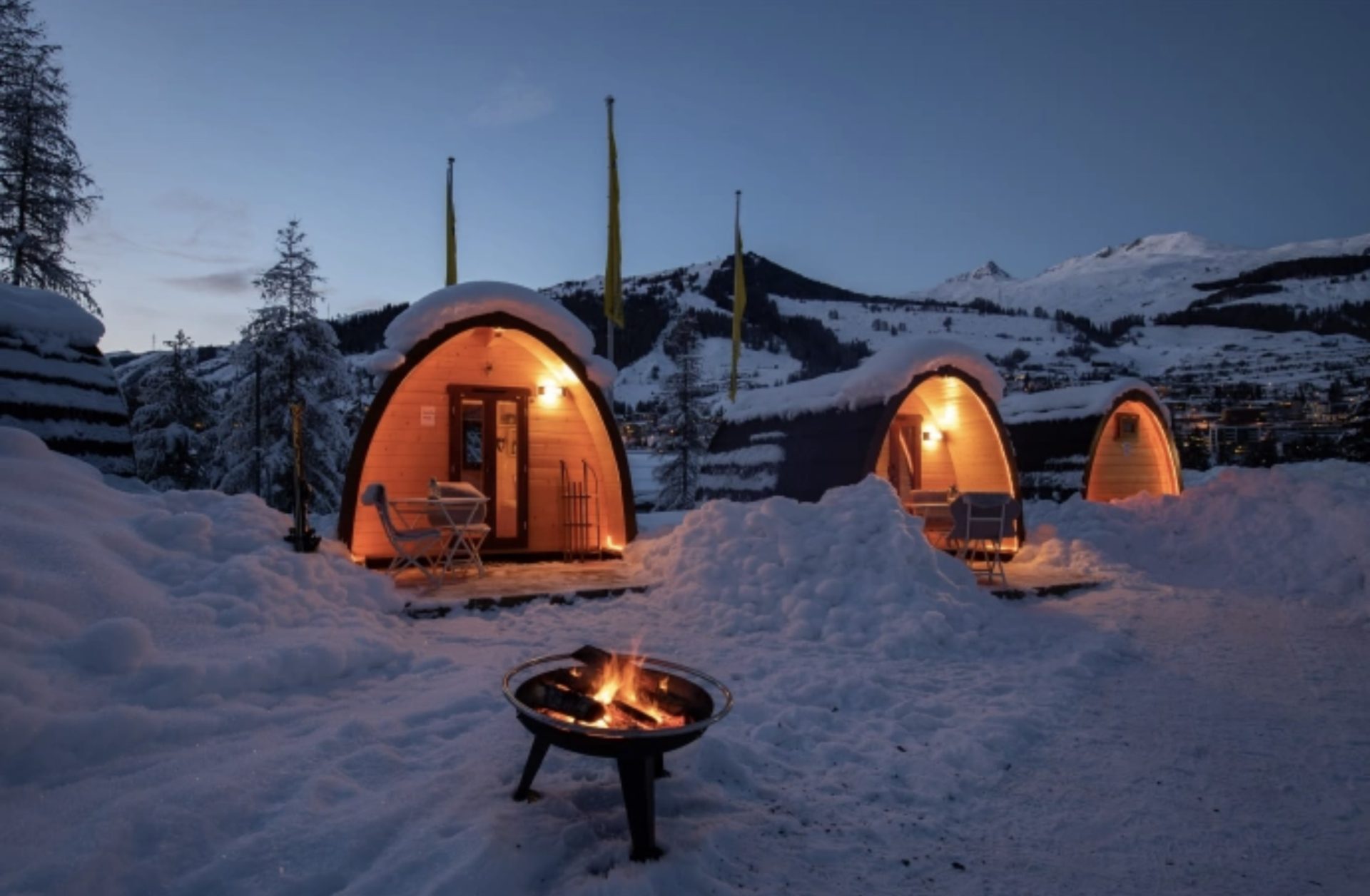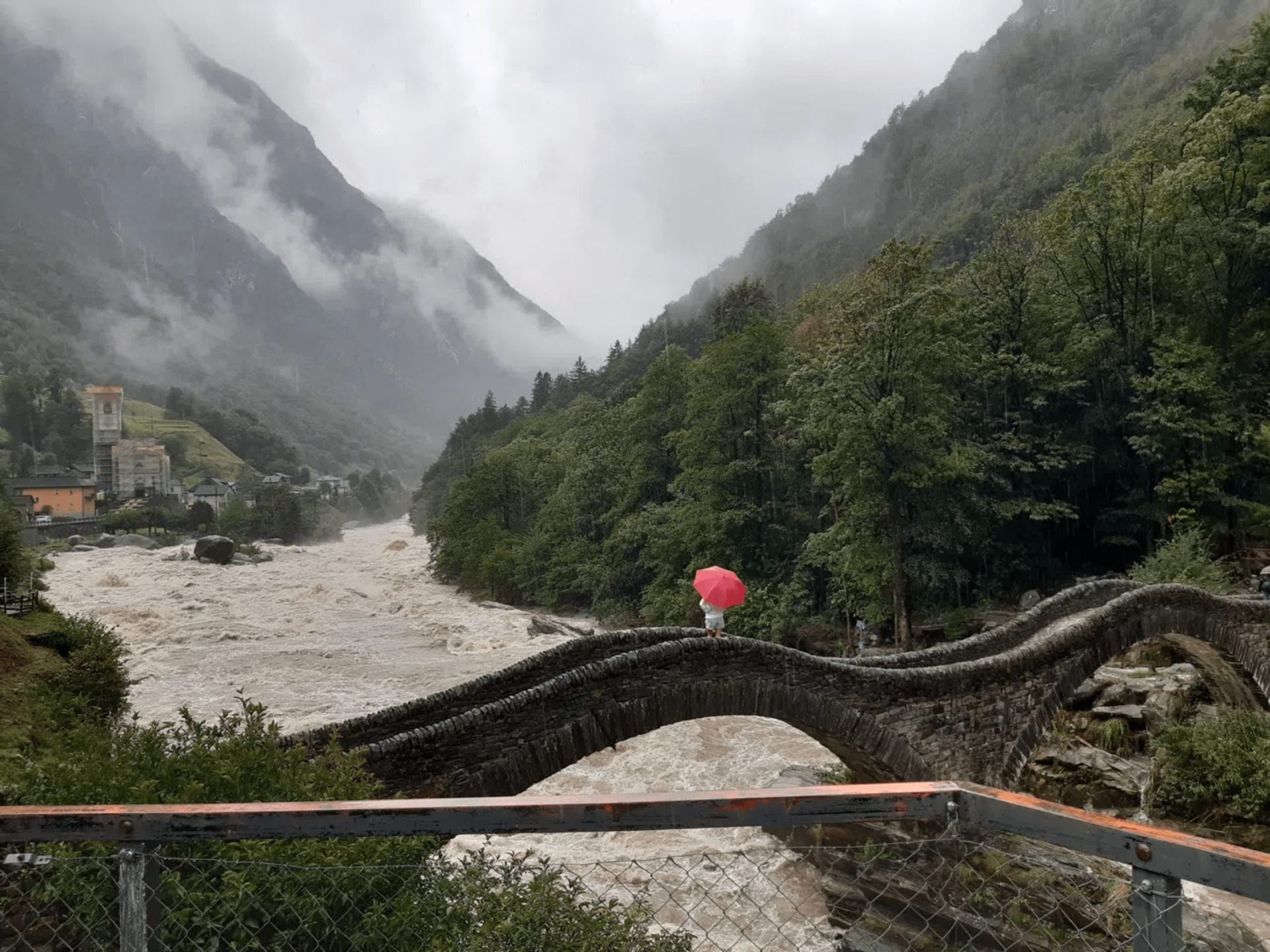
After a high pressure front with extremely warm temperatures last week in the European Alps, a low pressure front brought a storm which hit the area with records amount of rainfalls, hail and even snow in higher regions.
The storm left in its wake a trail of destruction, from flooding and landslides in Switzerland and Austria to damage from golf-ball sized hail closer to the Italian side of the Alps. Several rivers and creeks turned into dangerous streams and the Austrian and Italian governments advised people to stay clear of all waterways.
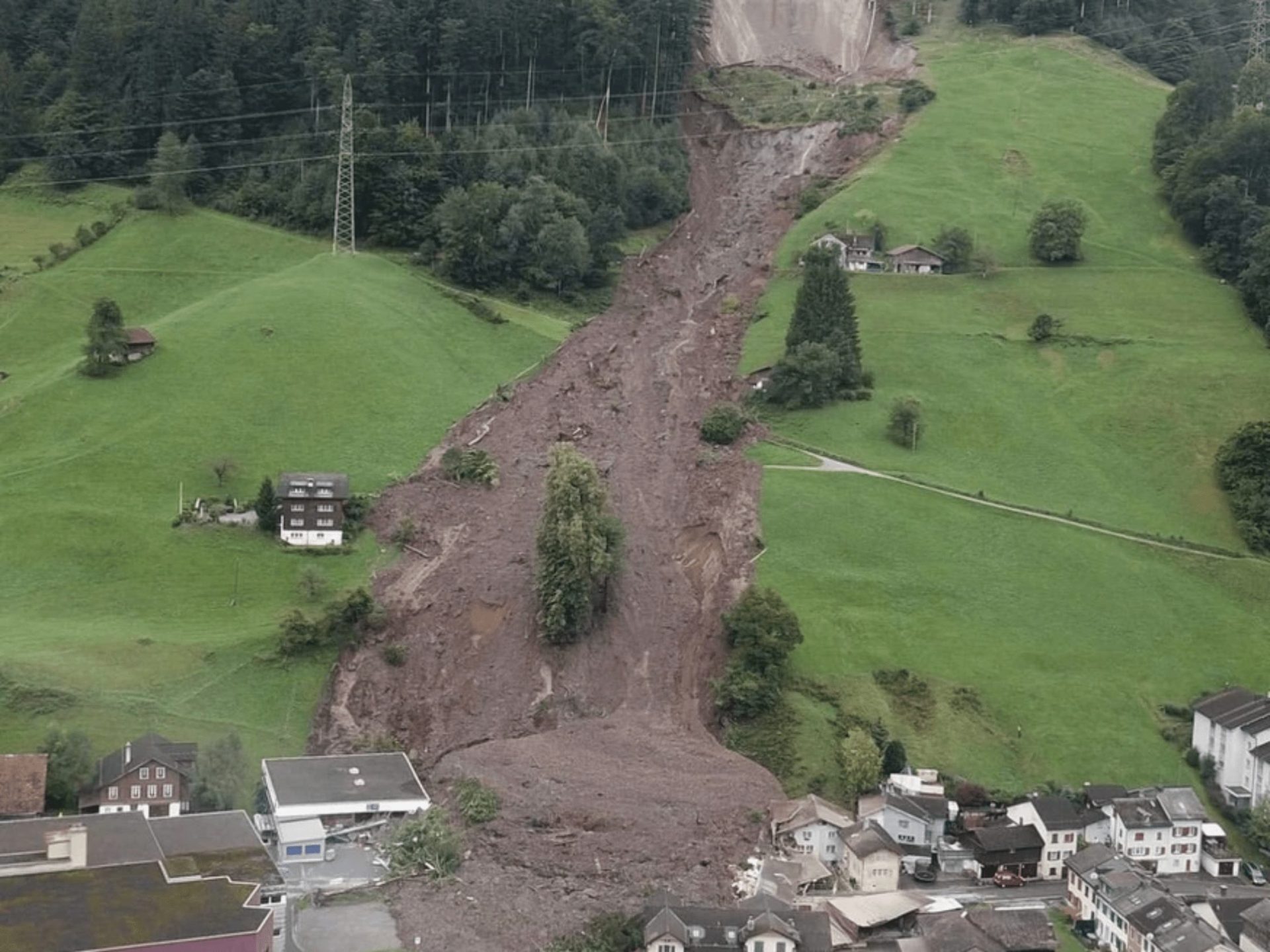
Strongly affected by floods were popular ski areas around Ötztal, Tyrol, Innsbruck, Voralberg and Kärnten in Austria, as well as several rivers crossing through Austria, Switzerland and Germany. The rivers Rhein and Inn reached flood levels not seen in a decade.
Debris from Switzerland and Austria was swept through the rivers all the way to Lake Constance in Germany, filling the coastline of the lake with an estimated 500 metric tons of drift wood. The water level of Lake Constance rose by nearly 80cm (2.6ft) in the aftermath of the rains and floods. It is one of the fastest five rises in waterlevel in the last 100 years, since the start of record keeping in 1918. A campground in Scuol in the Swiss canton of Graubünden had to be evacuated due to flooding.
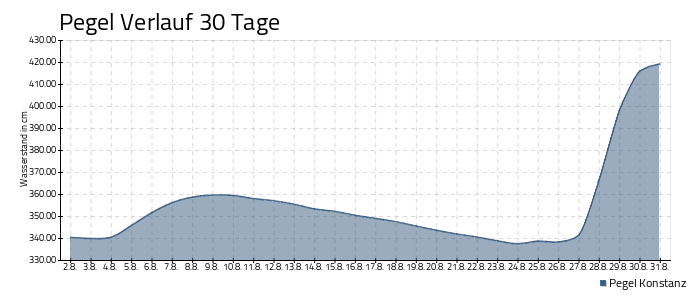
Landslides also occurred on the French side of the Alps as well as in Switzerland. A landslide in the Swiss canton of Glarus destroyed or damaged an estimated 38 houses in the town of Schwanden.
Some Alpine regions saw up to 400mm (15.7 inches) of rain, causing flooding and floodwater levels in rivers and waterways. In the south of Switzerland, in the Italian speaking canton of Ticino/Tessin, a hail storm destroyed several cars and damaged buildings. Hail the size of golf balls pelted down on Friday, August 25, 2023.
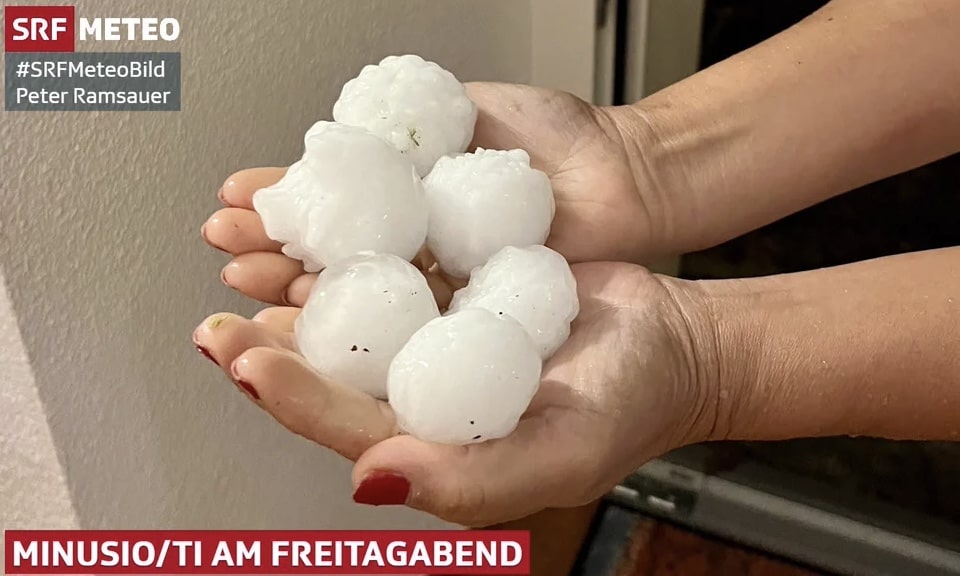
In higher regions the storm caused up to 15cm (6 inches) of summer snowfalls, resulting in the unexpected closure of some Alpine passes. Snow fell all the way down to 1,600m (5,250ft) in some Alpine regions, resulting in several higher Alpine passes closing temporarily, as most vehicles are not fitted with winter tires this time of year. According to the Swiss Automobile Club ‘TCS’, the Splügen pass as well as the Umbrail pass were still closed on Wednesday morning, August 30, 2023.
After a drought in the European Alps last year, this year’s August has been the wettest August in more than 10 years. Thankfully this also meant that many waterways were carrying below average water, thus resulting in less severe flooding. Regardless, the increase of extreme weather patterns is a concern and many attribute the increase in extreme events to climate change.
